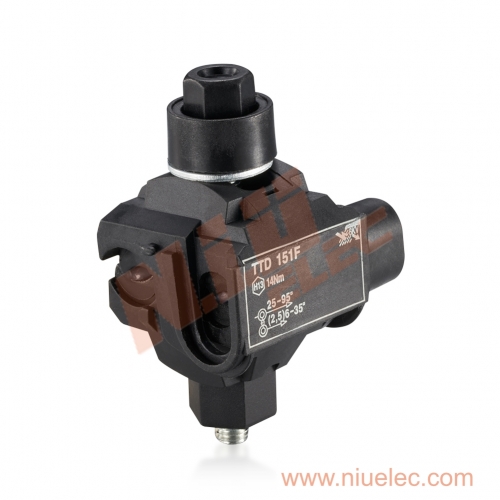Choosing the Right Insulation Piercing Connectors for Your Project
Insulation Piercing Connectors (IPCs) are essential for joining electrical conductors without the need to strip the insulation.
These small yet crucial components play a significant role in ensuring a safe and reliable electrical connection. Selecting the right IPCs for your project can be the difference between a successful installation and a potential source of electrical failure. Here's how you can ensure you're making the best decision when it comes to insulation piercing connectors.
Factors to Consider When Selecting Insulation Piercing Connectors
Before you rush into purchasing IPCs, it's important to consider the context in which they will be used. Size, material, and the intended application should all influence your decision-making process.
Choose a size that fits the conductor you're working with – IPCs come in various sizes to accommodate different wire gauges. The material should be selected based on environmental factors such as temperature, humidity, and chemical exposure. For outdoor applications, UV resistance might be a consideration.
You'll also want to ensure the IPC is rated for the appropriate voltage used in your system. Lastly, think about the shape of the connector and whether it will fit well in the enclosures and pathways within your installation.
Compatibility Matters: Ensuring Proper Fit and Functionality
Compatibility is key when selecting IPCs. They need to ensure a tight seal when piercing the insulation to prevent moisture ingress and maintain the integrity of the electrical connection. Check that the diameter of the connector aligns with the insulation thickness and that the piercing elements are sharp enough to penetrate without damaging the wire.
In addition, IPCs should be compatible with the conductor's material. Aluminum and copper, for example, require connectors that are specifically designed to work with their unique properties. A mismatch could lead to galvanic corrosion and reduced connection efficacy.
Performance Metrics: Evaluating Durability and Electrical Conductivity
IPC performance is dependent on several key metrics. The first is durability – IPCs must be able to withstand mechanical stress, vibration, and the environment without losing their electrical performance.
Electrical conductivity is another critical aspect. Look for IPCs that offer low contact resistance to minimize energy loss and heat generation, especially in high-ampacity applications. Material composition and surface coatings are factors that influence this conductivity and should be carefully considered.
Customization Options: Tailoring Insulation Piercing Connectors to Specific Needs
In some cases, standard off-the-shelf IPCs might not meet the precise requirements of your project. Customization options, such as insulator types, wire entry angles, and color coding for identification, can enhance the suitability of IPCs for your unique needs. Assess whether any special features are necessary to optimize installation or long-term maintenance.
Practical Installation Tips for Insulation Piercing Connector Deployment
Finally, even the best IPCs are only as good as their installation. Ensure that your connectors are tightened to the manufacturer's specifications to provide the required pressure on the conductor.
Before closing the connection, verify that the insulation is properly sealed and that the integrity of the electrical connection is preserved. Regular checks and tests should be part of your maintenance routine to detect any issues early on.
By taking these factors into account, you can select insulation piercing connectors that not only meet your project's immediate needs but also contribute to a robust and reliable electrical system for years to come.
For more information on our top recommended insulation piercing connectors, visit Niuelec's Insulation Piercing Connectors.
